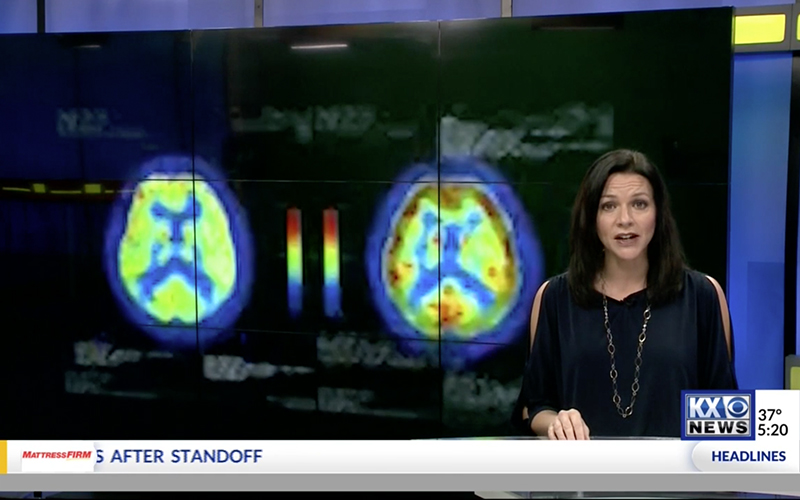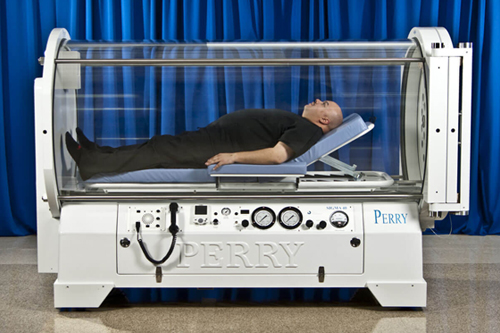In a subset of chronic fatigue syndrome (CFS) patients, the immune system is always activated. Although it is unknown why this happens, one hypothesis is that it is caused by a lingering infection or an infection that leaves an autoimmune sequelae.
Although the immune systems of some CFS patients are chronically activated, parts function poorly, particularly the T cells (the “generals” of the immune system army) and natural killer cells (destroyers of infected or cancerous cells). CFS patients’ T cells have a decreased capacity to divide and generate new T cells, and their natural killer cells have significantly decreased cytotoxic activity.1,2 In CFS, the immune system is based on the type of response T cells mount to infection. Two types of T-helper cells boost the immune attack—T-helper type 1 (Th1) cells and T-helper type 2 (Th2) cells. Th1-type cells stimulate macrophages and natural killer cells, which directly attack microbes that replicate in the body’s cells. This type of response is called cellular immunity. Th2 cells attack foreign matter too large to be killed by macro-phages or natural killer cells, by preferentially stimulating B cells to produce antibodies. This type of response is called humoral immunity.
In CFS, as in many auto-immune diseases, the body tends to mount a humoral response. Activated T helper cells from CFS patients produce fewer Th-1 cytokines, substances that convey messages to other cells and mediate their function, and produce more interleukin-5, a Th2-type cytokine.1
Several therapeutic interventions are being studied to help reverse this unfavorable cytokine expression in CFS patients and shift the T-helper cell responses from Th2- to Th1-type predominant patterns. Although none of the immunotherapies discussed here are available yet for clinical use, the research shows promising results.
Lymph node cells. A phase I clinical trial conducted by our group at the University of Miami* used surgical lymph node extraction and ex vivo cell culture followed by autologous cell reinfusion as a treatment to favor a Th2- to Th1-type cytokine expression shift in CFS patients.3
Lymph nodes were obtained from patients who met the 1994 international case definition for CFS4 and had a Karnofsky score of less than 80, a history of acute onset, and evidence of immune dysfunction. Cells were cultured for 10 to 12 days with anti-CD3 and IL-2 to expand them, then were reinfused into the donor.
Of the 11 test patients who had cells reinfused, nine experienced significant cognitive improvement, the majority in association with a shift to Th-1 predominance. Other symptom measures improved as well. The effects, including the undermining of a Th2 cytokine predominance, persisted for at least 12 weeks postinfusion.
The lack of adverse effects and the favorable clinical and immunological results observed suggest that further clinical trials are warranted. Phase I and II clinical trials have shown that T-cell-based immunotherapy is safe and effective for the treatment of AIDS patients with Kaposi’s sarcoma and oral hairy leukoplakia.5
Mycobacterium vaccae. Preparations of killed Mycobacterium vaccae affected a nonspecific, systemic Th1-type response bias, in particular by down-regulation of Th2 activity without concomitant up regulation of Th1 activity. The latter feature is similar to the effect on the Th1/Th2 proportions of the lymph node cell-based immunotherapy described previously.6
After injecting M. vaccae in animal models, a nonspecific bias away from Th2 activity was observed in several studies. Mice were immunized with ovalbumin, an allergen known to evoke a strong Th2-type pattern of response accompanied by IgE production and prime for release of two Th-2 type cytokines, IL-4 and IL-5. The animals then received saline or M. vaccae. Injection of M. vaccae reduced the rise in IgE levels caused by immunization with ovalbumin.
Spleen cells from the immunized animals also failed to release IL-5 in vitro in response to ovalbumin when the animals had been treated with M. vaccae. This shows that there is a nonspecific systemic down-regulation of the TH2 response pattern, which is not dependent on the direct adjuvant effect on the allergen itself.
The same researchers who conducted these studies in mice described a CFS patient who reported improvement after two injections of M. vaccae. A second patient reported that her CFS symptoms and food allergies improved considerably after receiving the vaccine at two-month intervals.6
Staphylococcal vaccine. The use of staphylococcal vaccine to favor a Th-1 predominance was studied by Swedish researchers.7 After a pilot study of eight patients, a double bind placebo-controlled study was performed with a group of 24 female patients with CFS and fibromyalgia.
The patients received injections of staphylococcal preparations or placebo approximately once a week for several months, then monthly administrations for up to one or two years.
Several of the 13 patients who received the staphylococcal vaccine were assessed as having minimal improvement, three as much improved, and the remaining three as unchanged. In the placebo group, three patients were minimally improved, while the remaining eight were unchanged.
Following the study, all patients continued the treatment; 20 were treated for one to two years. Nineteen of the 20 were unable to work full-time prior to the study and one worked part-time. At a one-year follow-up, nine of the 20 patients were working full- or part-time, one was taking part in a internship program, and one was in the middle of a two-year nursing program. Further studies are being conducted.
Panax ginseng. An extract of the herb Panax ginseng was studied for its capacity to stimulate the cellular immune function of peripheral blood mononuclear cells (PBMC) in normal individuals and in CFS patients.8
At concentrations greater than or equal to 10 micrograms/kg, the extract was found to significantly enhance natural killer cell function in both groups. It also enhanced the antibody-dependent cellular toxicity of PBMC in normal individuals as well as patients with depressed cellular immunity and CFS.
Practitioners should note that, although ginseng is generally well tolerated, it may cause decreased response to warfarin and may interfere with digoxin pharmacodynamics or monitoring. In addition, the herbal extract may cause headache, tremulousness, and manic depressive episodes in patients treated with phenelzine sulfate.
Ginseng should not be used with estrogens or corticosteroids because of possible additive effects and may affect the blood glucose levels of patients with diabetes mellitus.
Imunovir (inosine pranobex). A clinical study of the immunomodulating and antiviral properties of the synthetic purine derivative Immunovir in 16 CFS patients revealed enhanced natural killer cell activity and clinical improvement of fatigue in 60% of the test subjects.6
Immunovir is currently registered outside the United States for the treatment of acute and chronic viral infections, including herpes and measles.
Other treatment avenues. Japanese herbal medicines called Hozai were found to modulate antigen-specific T-cell responses for a more balanced Th1/Th2 response in old BALB/c mice, which have a preferential Th-2 type cytokine response pattern.9 A more balanced effect may help to prevent the development of autoimmune diseases in mice and possibly CFS in humans by preserving a Th1-type response.
In addition, antivirals with immunomodulatory properties, such as Sizofran and Ampligen, may open new avenues for therapeutic intervention. Sizofran, an immunostimulant extracted from suchirotake mushroom cultured fluid, is in phase II trials for the treatment of CFS. In August 1999, Kaken Pharmaceutical Co. prepared its New Drug Approval (NDA) for a hepatitis B indication.
Only one antiviral immunomodulating drug, Ampligen, is nearing the end of the FDA’s approval process for treatment of CFS. More than 100 patients are receiving Ampligen either by paying for it themselves or through enrollment in an FDA-required randomized study of the drug. It remains to be seen whether the side effect profile of Ampligen will allow its widespread use.
More studies need to be conducted on therapies that manipulate the immune system away from proinflammatory cytokines and Th-2 response toward Th-1 cytokine patterns. This research should be useful in finding viable treatments and understanding the pathogenesis of CFS.
References
Klimas N. et al. Immunologic abnormalities in chronic fatigue syndrome. J Clin Microbiol. 1990; 28: 1403-10.
Patarca R. Concise Encyclopeida of Chronic Fatigue Syndrome. New York: The Haworth Press, pp. 1 ff., 2000.
Klimas NG, Fletcher MA. Alteration of type 1/type 2 cytokine pattern following adoptive immunotherapy of patients with chronic fatigue syndrome (CFS) using autologous ex vivo expanded lymph node cells. Abstract, 2nd International Conference on CFS, Brussels, Belgium, 1999.
Fukuda et al. The chronic fatigue syndrome: a comprehensive approach to its definition and study. Ann Intern Med. 1994; 121: 953-59.
Patarca R et al. Adoptive CD 8+ T-cell immunotherapy of AIDS patients with Kaposi’s sarcoma. Critical Rev in Oncogenesis. 1995; 6: 179-234.
Patarca R. Treatment of chronic fatigue syndrome in the antiviral revolution era. New York: The Haworth Press, pp. 1 ff., 2001.
Andersson M et al. Effects of staphylococcus toxoid vaccine on pain and fatigue in patients with fibromyalgia/chronic fatigue syndrome. Eur J Pain. 1998; 2: 133-42. See DM et al. In vitro effects of echinacea and ginseng on natural killer and antibody-dependent cell cytoxicity in healthy subjects and chronic fatigue syndrome or AIDS. Immunopharmacol. 1997; 35: 229-35. Lijima H et al. Juzan-taiho-to, a Japanese herbal medicine, modulates type 1 and type 2 T-cell responses in old BALB/c mice. Am J Chinese Med. 1999; 27: 191-203.
*Editor’s Note: This study was funded by The CFIDS Association of America. See Grants for Research in this issue for information about the Association’s grants program.
Dr. Roberto Patarca-Montero is Assistant Professor of Medicine, Microbiology, and Immunology and Director of the E.M. Papper Laboratory of Clinical Immunology at the University of Miami School of Medicine. He is editor of the Journal of Chronic Fatigue Syndrome.
Findings suggesting immunomodulatory approach to CFS:
Chronic immune activation
Lymphocyte dysfunction
Natural killer cell dysfunction
Th-2 based immune response and proinflammatory cytokines
Tender lymph nodes
Acute onset



1 Comment
[…] Understanding Immune Dysfunction in CFS Harch Hyperbaric Oxygen Therapy […]